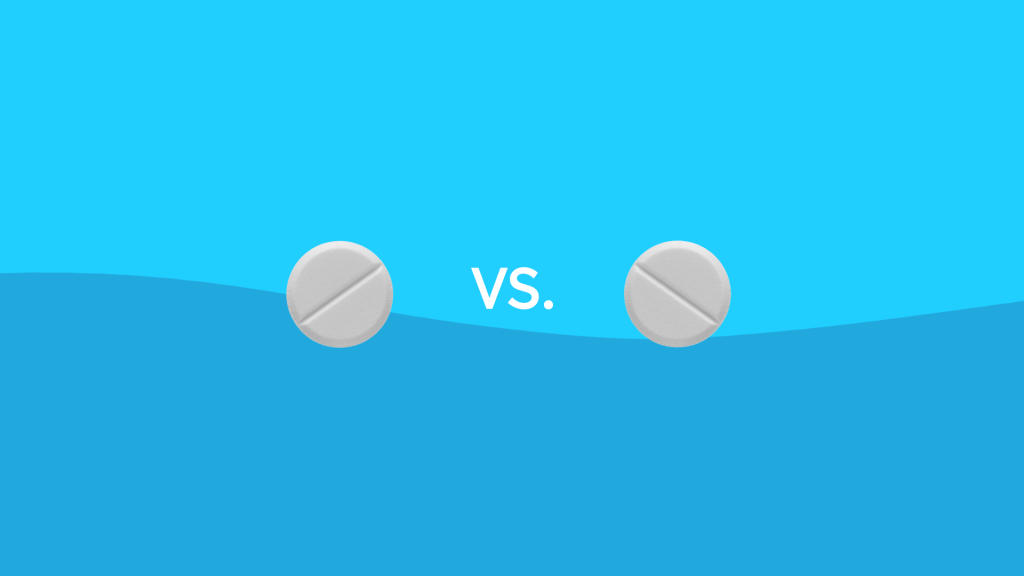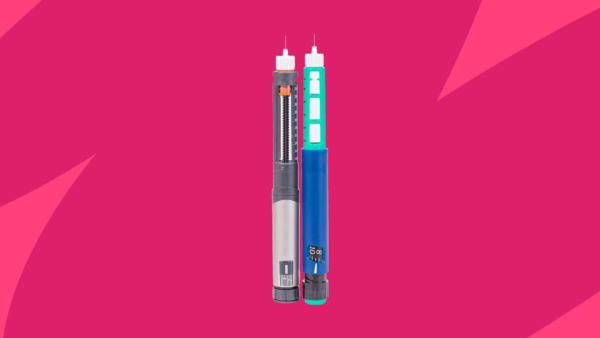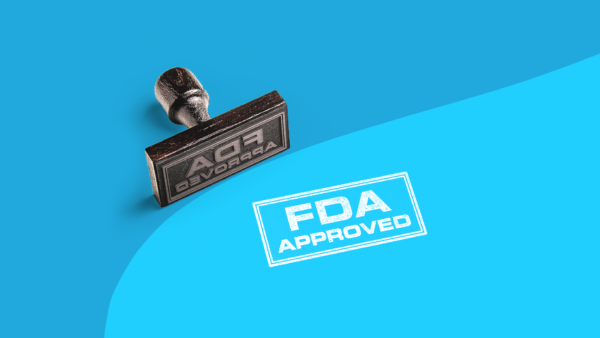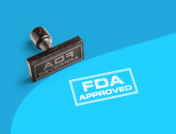Main differences | Conditions treated | Which one is more effective? | Coverage and cost comparison | Common side effects | Drug interactions | Warnings | Faqs
Minor headaches, muscle aches, and fever are common ailments that can affect anyone. For many people, having the right medicine on hand can improve their peace of mind. Over-the-counter (OCT) treatment options are plentiful, with nonsteroidal anti-inflammatory drugs (NSAIDs) being some of the most commonly used medications for pain relief. You might see NSAIDs like Aleve and ibuprofen placed together in the pharmacy aisle and question which is better.
Aleve and ibuprofen work similarly to relieve pain and fever. As nonselective NSAIDs, Aleve and ibuprofen block the COX-1 and COX-2 enzymes, which are responsible for helping create prostaglandins or certain chemicals that play a role in inflammatory processes. The COX-2 enzyme is mainly involved with regulating pain and inflammation, while the COX-1 enzyme is involved with kidney function, platelet function, and protecting the stomach lining.
Although Aleve and ibuprofen work similarly to help relieve pain and fever, they have some important differences. Continue reading to learn more about the similarities and differences between Aleve and ibuprofen and which one may be the better option.
What are the main differences between Aleve and ibuprofen?
Aleve and ibuprofen differ in several ways. One medication may be preferred over the other, depending on different factors. It’s always best to consult a healthcare provider when choosing the right treatment.
One is a brand-name drug, and the other is a generic
Aleve is a brand-name drug and is also available in a generic form. Ibuprofen is a generic drug that is known by various brand names, including Advil, Motrin, and Ibu. Generic drugs are usually cheaper than their brand-name versions.
They contain different active ingredients
Naproxen comes in two forms: naproxen base and naproxen sodium. Aleve contains the active ingredient naproxen sodium, the salt form of naproxen, which is more rapidly absorbed than naproxen base. Ibuprofen is the active ingredient in Advil, Motrin, and other brand-name pain relievers. Although they work similarly, naproxen and ibuprofen have different chemical structures.
They have different recommended dosages
The recommended dosage of Aleve is 220 mg every eight to 12 hours, while the recommended dosage of ibuprofen is 200 to 400 mg every four to six hours. Keep in mind that these are the recommended dosages for the OTC strengths of these medications. Naproxen and ibuprofen are also available in higher prescription strengths with higher allowable dosages. In addition, Aleve and ibuprofen come in different dosage forms; Aleve is generally found as a tablet, while ibuprofen can be found as a tablet, capsule, chewable tablet, and oral liquid.
The age limits for each drug differ
Aleve is approved to treat fever and minor aches or pains in adults and children aged 12 years and older. Ibuprofen is approved to treat the same ailments in adults, children, and infants as young as six months old. For young children, ibuprofen may be a better option than Aleve.
Aleve lasts longer
Aleve is a long-acting NSAID that can last for around 12 hours at a time. On the other hand, ibuprofen is a short-acting NSAID that generally needs to be taken every four to six hours. If you’re looking for long-term pain relief throughout the day without having to take multiple doses of a drug, Aleve may be a better option than ibuprofen.
| Aleve | Ibuprofen | |
| Drug class | Nonsteroidal anti-inflammatory drug (NSAID) | Nonsteroidal anti-inflammatory drug (NSAID) |
| Brand/generic status | Brand and generic version available | Brand and generic version available |
| What is the generic name? What is the brand name? |
Generic: Naproxen Brand: Aleve |
Generic: Ibuprofen Brand: Advil, Motrin, Ibu |
| What form(s) does the drug come in? | Tablets Caplets Gelcaps |
Tablets Chewable tablets Oral capsules Oral suspension Liquid drops |
| What is the standard dosage? | 220 mg every 8-12 hours | 200-400 mg every 4-6 hours |
| How long is the typical treatment? | For fever: up to 3 days For pain: up to 10 days |
For fever: up to 3 days For pain: up to 10 days |
| Who typically uses the medication? | Adults and children aged 12 years and older | Adults, children, and infants aged 6 months and older |
Conditions treated by Aleve and ibuprofen
Aleve and ibuprofen are both approved to treat fever and minor aches or muscle pain. In addition, they’re used to treat joint pain caused by different forms of arthritis, such as osteoarthritis, ankylosing spondylitis, and rheumatoid arthritis. Like other NSAIDs, Aleve and ibuprofen may also be used to treat menstrual cramps (dysmenorrhea).
Aleve is also approved to treat gout. Conversely, the treatment of gout is considered an off-label use of ibuprofen. In other words, a healthcare provider may prescribe ibuprofen for gout even though it is not FDA approved for that indication. In addition, the treatment of migraines is an approved use of ibuprofen and an off-label use of naproxen.
The OTC versions of Aleve and ibuprofen can be useful for treating minor aches and pains.
A healthcare provider will likely recommend the prescription-strength versions of these NSAIDs if they find either appropriate for more severe pain.
| Condition | Aleve | Ibuprofen |
| Minor aches and pains | Yes | Yes |
| Fever | Yes | Yes |
| Ankylosing spondylitis | Yes | Yes |
| Osteoarthritis | Yes | Yes |
| Rheumatoid arthritis | Yes | Yes |
| Dysmenorrhea | Yes | Yes |
| Gout | Yes | Off-label |
| Migraine | Off-label | Yes |
Is Aleve or ibuprofen more effective?
Aleve and ibuprofen are effective pain relievers and fever reducers when compared to a placebo, or using no medication at all. Different factors can affect how well either medication works, such as dosage and the severity of the condition being treated. For example, a higher dosage of one NSAID will generally be more effective than a lower dosage of another NSAID.
Although Aleve lasts longer than ibuprofen, Aleve and ibuprofen are similarly effective when taken at their recommended dosages. Research has found that naproxen and ibuprofen are similarly effective for different chronic conditions involving pain, such as osteoarthritis. According to a comparison study that included two randomized, double-blind trials, 440 mg or 660 mg of naproxen per day was similarly effective to 1200 mg of ibuprofen per day for knee osteoarthritis. However, naproxen was found to significantly improve more symptoms of osteoarthritis than ibuprofen. In addition, patients reported better night-time pain relief with naproxen than with ibuprofen.
Some people report experiencing better pain relief from one NSAID than from another. The most effective medication is the one that works best for you. Consult a healthcare provider to determine the best treatment option. Some people may find that a different NSAID, such as meloxicam or diclofenac, works better than naproxen or ibuprofen.
Coverage and cost comparison of Aleve vs. ibuprofen
OTC medications are not generally covered by Medicare or health insurance plans. However, the prescription-strength versions of naproxen and ibuprofen are usually covered by Medicare and insurance plans. With a SingleCare Aleve or ibuprofen coupon, you could save on the cash price of OTC or prescription-strength naproxen or ibuprofen. To be able to use a discount coupon on an OTC medication, have a healthcare provider write a prescription for it and bring the prescription to the pharmacy.
| Aleve | Ibuprofen | |
| Typically covered by insurance? | Yes (prescription strength) | Yes (prescription strength) |
| Typically covered by Medicare Part D? | Yes (prescription strength) | Yes (prescription strength) |
| Quantity | 20 tablets (500 mg) | 30 tablets (800 mg) |
| Typical Medicare copay | $0-$20 | $0-$22 |
| SingleCare cost | $3+ | $2+ |
Common side effects of Aleve vs. ibuprofen
The most common side effects of NSAIDs like Aleve and ibuprofen are gastrointestinal side effects, such as stomach pain, heartburn, nausea, diarrhea, and constipation. Other side effects include headache, dizziness, itching, ringing in the ears (tinnitus), and swelling of the arms or legs (edema).
Serious side effects are possible with Aleve and ibuprofen. The use of these NSAIDs may lead to an increased risk of ulcers, stomach bleeding, high blood pressure, stroke, heart attack, and liver or kidney problems. However, the risk of high blood pressure and heart problems is greater with ibuprofen than with naproxen.
| Aleve | Ibuprofen | |||
| Side Effect | Applicable? | Frequency | Applicable? | Frequency |
| Stomach pain | Yes | 3-9% | Yes | 3-9% |
| Headache | Yes | 3-9% | Yes | <3% |
| Dizziness | Yes | 3-9% | Yes | 3-9% |
| Heartburn | Yes | 3-9% | Yes | 3-9% |
| Nausea | Yes | 3-9% | Yes | 3-9% |
| Constipation | Yes | 3-9% | Yes | <3% |
| Diarrhea | Yes | <3% | Yes | <3% |
| Itching | Yes | 3-9% | Yes | <3% |
| Rash | Yes | <1% | Yes | 3-9% |
| Tinnitus | Yes | 3-9% | Yes | <3% |
| Edema | Yes | 3-9% | Yes | <3% |
Frequency is not based on data from a head-to-head trial. This may not be a complete list of adverse effects that can occur. Please refer to your doctor or healthcare provider to learn more.
Source: DailyMed (Aleve), DailyMed (Ibuprofen)
Drug interactions of Aleve vs. ibuprofen
As NSAIDs, Aleve and ibuprofen can interact with many of the same medications. NSAIDs should be used with caution while taking drugs that can affect clotting, such as anticoagulants like warfarin, antiplatelet agents like aspirin, and certain antidepressants. Taking NSAIDs with one of these medications can increase the risk of bleeding. In addition, NSAIDs may interfere with the effects of aspirin, which can cause an increased risk of heart attacks and strokes.
NSAIDs can increase blood pressure and should be used with caution while taking blood pressure medications, such as ACE inhibitors, ARBs, and beta-blockers. Taking an NSAID could counter the effects of blood pressure medications.
Combining an NSAID and a diuretic, such as Lasix (furosemide) or Microzide (hydrochlorothiazide), could lead to kidney problems, especially in people with preexisting kidney disease.
NSAIDs may increase the risk of toxicity from Lithobid (lithium) or Rheumatrex (methotrexate). NSAIDs should be used with caution while taking either of these medications. A healthcare provider may want to monitor for symptoms of toxicity if a drug interaction is a concern.
Certain antacids, such as Mag-Ox (magnesium oxide) and Amphojel (aluminum hydroxide), can delay the absorption of Aleve into the body. It is not recommended to take Aleve with these antacids.
| Drug | Drug Class | Aleve | Ibuprofen |
| Coumadin (warfarin) | Anticoagulant | Yes | Yes |
| Prozac (fluoxetine)
Paxil (paroxetine) Zoloft (sertraline) Effexor XR (venlafaxine) |
Antidepressants | ||
| Aspirin | Antiplatelet | Yes | Yes |
| Capoten (captopril)
Zestril (lisinopril) Altace (ramipril) |
Angiotensin-converting enzyme (ACE) inhibitor | Yes | Yes |
| Diovan (valsartan)
Cozaar (losartan) Benicar (olmesartan) |
Angiotensin receptor blocker (ARB) | Yes | Yes |
| Coreg (carvedilol)
Tenormin (atenolol) Zebeta (bisoprolol) |
Beta-blockers | Yes | Yes |
| Lasix (furosemide)
Microzide (hydrochlorothiazide) |
Diuretic | Yes | Yes |
| Lithobid (lithium) | Mood stabilizer | Yes | Yes |
| Rheumatrex (methotrexate)
Alimta (pemetrexed) |
Antimetabolite | Yes | Yes |
| Amphojel (aluminum hydroxide)
Mag-Ox (magnesium oxide) |
Antacids | Yes | No |
Consult a healthcare professional for other possible drug interactions
Warnings of Aleve and ibuprofen
Like other NSAIDs, Aleve and ibuprofen have black box warnings on their drug labels. NSAIDs carry an increased risk of serious complications, such as cardiovascular events and gastrointestinal side effects. Using an NSAID may lead to an increased risk of blood clots, heart attacks, and strokes, as well as stomach ulcers and gastrointestinal bleeding. These adverse effects can develop with short-term or long-term use. Tell your doctor if you have a history of heart problems, such as heart disease or congestive heart failure, or gastrointestinal problems, such as stomach ulcers, before taking an NSAID. Studies suggest that naproxen has a lower risk of serious cardiovascular problems than ibuprofen and other NSAIDs.
Avoid taking Aleve or ibuprofen if you are allergic to any ingredients in NSAIDs. Seek immediate medical attention if you experience an allergic reaction, which can cause symptoms like hives, itching, swelling of the face or throat, and trouble breathing.
Kidney problems, including kidney damage, can develop while using NSAIDs. In addition, liver damage has been reported in people taking NSAIDs. People who are on long-term treatment with NSAIDs should have regular checkups to monitor for problems with their kidneys or liver.
It is not recommended to take NSAIDs while pregnant due to the risk of kidney problems and other serious complications in an unborn baby. NSAIDs are generally considered safe while breastfeeding. Consult a healthcare provider before taking an NSAID while pregnant or breastfeeding.
Frequently asked questions about Aleve vs. ibuprofen
What is Aleve?
Aleve is a brand-name drug that contains naproxen sodium. It is available in tablet, caplet, and gelcap form. The usual dosage is 220 mg every eight to 12 hours. Aleve is available over the counter as a commonly used NSAID for fever and pain relief. The active ingredient naproxen is available in prescription strengths for more severe pain.
What is ibuprofen?
Ibuprofen is a generic NSAID used to treat pain and fever. It is available in brand-name and generic forms. It is also available over the counter or with a prescription. The usual dosage of OTC ibuprofen is 200 to 400 mg every four to six hours.
Are Aleve and ibuprofen the same?
Both Aleve and ibuprofen are non-steroidal anti-inflammatory drugs that treat pain, inflammation, and fever. They’re approved for similar uses, such as minor aches and fevers. However, they are not the same. Aleve is a brand-name drug containing naproxen sodium, while ibuprofen is a generic drug. They differ in available dosage forms, drug interactions, and risks of certain side effects.
Is Aleve or ibuprofen better?
Aleve and ibuprofen are effective pain relief medications. They are similarly effective for treating pain and fever. However, Aleve is a longer-acting drug than ibuprofen, with effects that last for around 12 hours. Ibuprofen needs to be taken every four to six hours to provide optimal relief from pain or fever. Aleve may be a better option for long-lasting pain, while ibuprofen may be more suitable for young children.
Can I use Aleve or ibuprofen while pregnant?
The FDA has advised that pregnant women at 20 weeks or later avoid NSAIDs due to the risk of serious kidney problems. Problems with the kidney could lead to low amniotic fluid for an unborn baby, which can affect the development of the baby’s lungs, muscles, and digestive system. Consult a healthcare provider about the best treatment option during pregnancy.
Can I use Aleve or ibuprofen with alcohol?
Drinking alcohol in moderation while on Aleve or ibuprofen is not usually considered a serious problem. However, for people who are on long-term treatment with an NSAID, it’s a good idea to avoid drinking alcohol. Taking an NSAID with alcohol could lead to an increased risk of side effects, such as stomach ulcers, bleeding, kidney problems, and drowsiness.
Aleve vs. ibuprofen for back pain
NSAIDs, such as naproxen and ibuprofen, can be effective medications for treating back pain. However, you should consult a healthcare provider about the best treatment option for your back pain. You may be recommended a different option depending on the cause of the back pain. For example, low back pain caused by a herniated disc or nerve problems will not be relieved by an NSAID. NSAIDs are effective for treating pain that occurs with inflammation.
Which is better: Aleve, ibuprofen, or Tylenol?
Tylenol is not an NSAID. Instead, it contains acetaminophen, which is classified as a pain reliever and fever reducer. Acetaminophen is comparable to NSAIDs for treating pain and fever, but it won’t be as effective as an NSAID for treating inflammatory conditions, such as arthritis. Someone with high blood pressure, heart problems, or kidney damage may be recommended Tylenol instead of an NSAID. However, taking too much acetaminophen can lead to liver problems. It is best to talk to a healthcare professional about choosing the right OTC medication.











